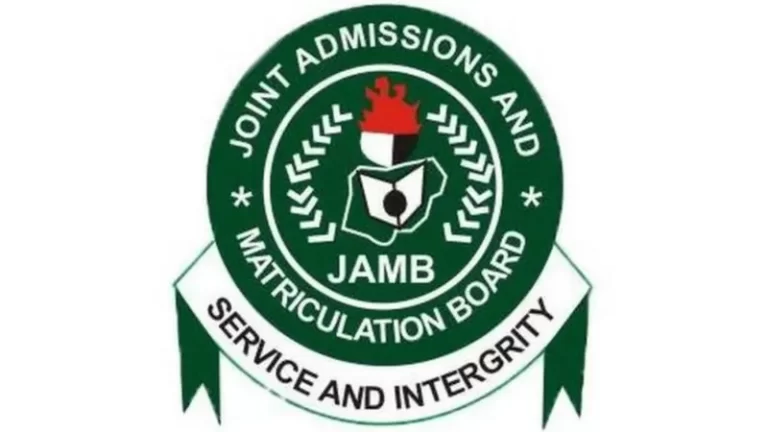Waec

2022 WAEC GOVERNMENT OBJECTIVES (OBJ) ANSWERS
1-10: AABDAACBCC
11-20: CACCDACBDC
21-30: BABDCDDBAC
31-40: CCCCBDABBC
41-50: CBBDABBDCB
2022 WAEC GOVERNMENT ESSAY (THEORY) ANSWERS:
(1)(i) Failure of the past government: Due to the failure of the past government in fulfilling fair promises
(ii) Fear of intimidation: This may discourage the individuals the opportunity of expressing his opinions freely and this may affect his trust in the government
(iii) Aparthy/Lack of interest: This may create distrust or barrier between individuals and government
(iv) Poverty: This may discourage citizens to trust government due to high level of Poverty in the country
(v) Ignorance/illiteracy: The efforts of this is that citizens may not see the need to participate in politics due to their lack of knowledge on the government activities
(PICK ANY FIVE)
(2)(i) Independence of the electoral body: The electoral body should be made autonomous rather than appendages of the executive arm government. Government should not interfere with the conduct of election.
(ii) Secret balloting: Voting should be done sectretly, so as to give the voters the freedom to vote for canditate of their choice.
(iii) Political education of the electorates: The electorates should be educated on their rights and how to identify party symbols and the proper manner of voting.
(iv) Non-inference: There should be no political interference in the affairs of the commission
(v) Appointment: The officials of the commission should not be appointed by the executive government. It should be done by the independent body whic is the commission.
(vi) Integrity: Those to be appointed into the commission must be people of proven integrity and transparent honesty.
(vii) Legal backing: The commission should be adequately backed up with the laws to enable it command respect and obedience from political parties and candidates.
4.
![2022 WAEC Government Essay & OBJ Answers [22nd June] 2022 WAEC Government Essay & OBJ Answers [22nd June]](https://blogger.googleusercontent.com/img/b/R29vZ2xl/AVvXsEhf4nNKaYD9DDWokuQxA5lWYNR6i5Gy4Hybsup-TcbNRdTNvtoQSLrh7v_xDEUJgm-qx5-zoZIhSoIjpbwFagV5jek8s5H1KTBzuetsZlP2q9MBxcndAF5XrtM3EcDtekDA9fPDK97yVk_Hv1_7s3xoDF75qhcZaVNGvO4jAiKux1AVIyaq6oRoT4wr/s16000/IMG-20220622-WA0010.jpg)
(6)(PICK ANY FIVE)
(i) Settlement of disputes: The traditional rulers performed some judicial functions by settling dispute among the people in their community
(ii) Creation of law enforcement: They also created law enforcement institutions like e.g age grades and masquerade to enable them maintain law and order in the community.
(iii) The use of ancestral spirits: The ancestral spirits were used by the traditional rulers to control their subjects which they believe guides their footsteps.
(iv) The use of sanction and punishments: These measures were applied against law breakers in the community, e.g banishment.
(v) The introduction of rewards: people who had contributed to the development of their areas were rewarded with titles or distribution of land and war booty.
(vi) Appointment of Chiefs: Chiefs were appointed by traditional rulers in order to use them to control their subjects(vii) Conscription of youths: The traditional rulers conscripted youths to perform forced labour and serve in the British army during the world wars.
OR
(6)(i) Settlement of disputes:The pre-colonial traditional rulers settled disputes. Disputes are normal in every society and pre-colonial societies in West Africa were no exception. Any dispute that arose was settled by the chiefs. Culprits were punished and the innocent were set free. This was one of the ways chiefs controlled their subjects.
(ii) Law enforcement: There were law enforcement institutions in place to ensure law enforcement. Some of the enforcement institutions were the Age grades, masquerades, and militant groups like the Asafo companies among the Akans. These enforcement institutions were used in controlling the subjects(iii) Use of ancestral spirits:The traditional belief that when the living misbehaved, the dead who lived in the after world could punish them, was another ingenious way of controlling the people. This belief in the underworld was common in pre-colonial times and nobody wanted to be on the wrong side of the gods hence they obeyed the laws thus helping the chiefs maintain control.
(iv) Customs or taboos and conventions:There were things that the traditional society frowned upon and the society never compromised on them. These were aspects of their customs, taboos, and conventions. Any infraction of the customs, taboos or conventions attracted a certain form of fine or sanctions. This way, the chiefs were able to control their subjects.
(v) Oath taking:In pre-colonial times, one of the ways of ascertaining the truth was the taking of an oath, to tell the truth. There were serious repercussions for anybody who took the oath and still went ahead to tell a lie. The oath was usually taken before the gods of the land represented by the Chief Priests. Sub-chiefs were also made to swear oaths to remain loyal to the Paramount Chief. All these helped to keep them in line.
7.
![2022 WAEC Government Essay & OBJ Answers [22nd June] 2022 WAEC Government Essay & OBJ Answers [22nd June]](https://blogger.googleusercontent.com/img/b/R29vZ2xl/AVvXsEhsipHgiChavh7G-9Axtyb1NxNvJH00T9NdoZbP1QPU1qORwLMG8dRdw0NwTKoo4M7LTA5y-Or8Cbf3MRT-z1tpW8bOiUUbcpfSuJlrogf2X9GqcQZ1E5-BnwdLXXTPwyklWx7rkkDg4yh9MWicSCB6xoFkZwmsNBkJ0RvlipFoAo4p6x5UCZ3d3s-m/s16000/IMG-20220622-WA0011.jpg)
(9a)E-Government is defined as the employment of the internet and the world wide web for delivering government information and services to the citizen. E-government describes the use of technology to facilitate the operation of government and the dispersement of information and services.
(9b)(PICK ANY FIVE)(i) Ultimate goal: The ultimate goal of the E government is to be able to offer an increased portfolio of public services to citizens in an efficient and cost effective manner. E-government allows for government transparency. This is important because it allows the public to be informed about what the government is working on as well as the policies they are trying to implement.
(ii) Efficient performance: Many changes such as marital status or addresses can be a long process and take a lot of paper work for citizens. E-government allows these tasks to be performed efficiently with more convenience to individuals.
(iii) Political participation: E-government is an easy way for the public to be more involved in political campaigns. It could increase voter awareness which could lead to an increase in citizen participation in elections.
(iv) Convenient and cost effective: It is convenient and cost-effective for businesses and the public benefits by getting easy access to the most current information available without having to spend time, energy and money to get it.
(v) Accessibility: E-government helps to simplify processes and makes access to government information more easily accessible for public sector agencies and citizen
(vi) Accountability: E Government transparency will give insight to the public on how decisions are made and hold elected officials or accountable for their actions. The public public servants could become a direct and prominent influence in government legislation to some degree.
(vii) Interaction with computers: E government allows the citizen to interact with computers to achieve objectives at any time and any location and eliminates the necessity for physical travel to government agents sitting behind desks and windows.
(viii) Quicker processing time: Improved accounting and record keeping can be noted through computerization and information and forms can be easily accessed, equating quicker processing time.
RECOMMENDED TOPICS
- JAMB 2025 UTME/DE registration document – step-by-step on how to apply for UTME and DE

- JAMB postpones 2025 UTME Registration to February 3rd

- JAMB Officially Announces 2025 UTME Registration, Exam, Mock Dates, Cost and Important Details

- The official reading novel for Jamb 2025 is Lekki Headmaster

- Subjects for Computer Science in JAMB for Guaranteed Success


